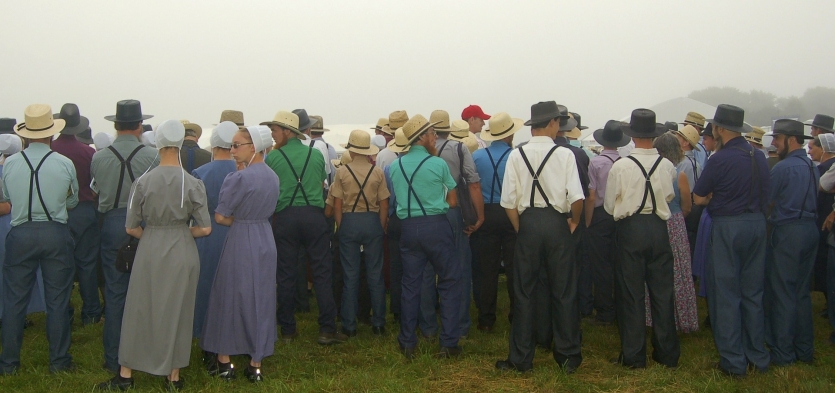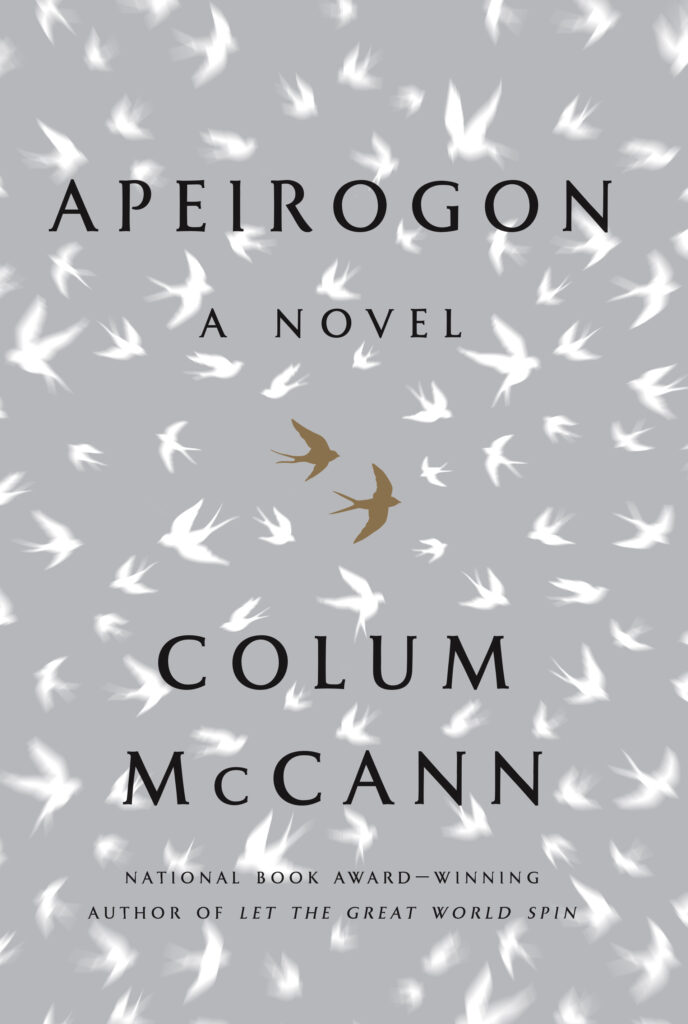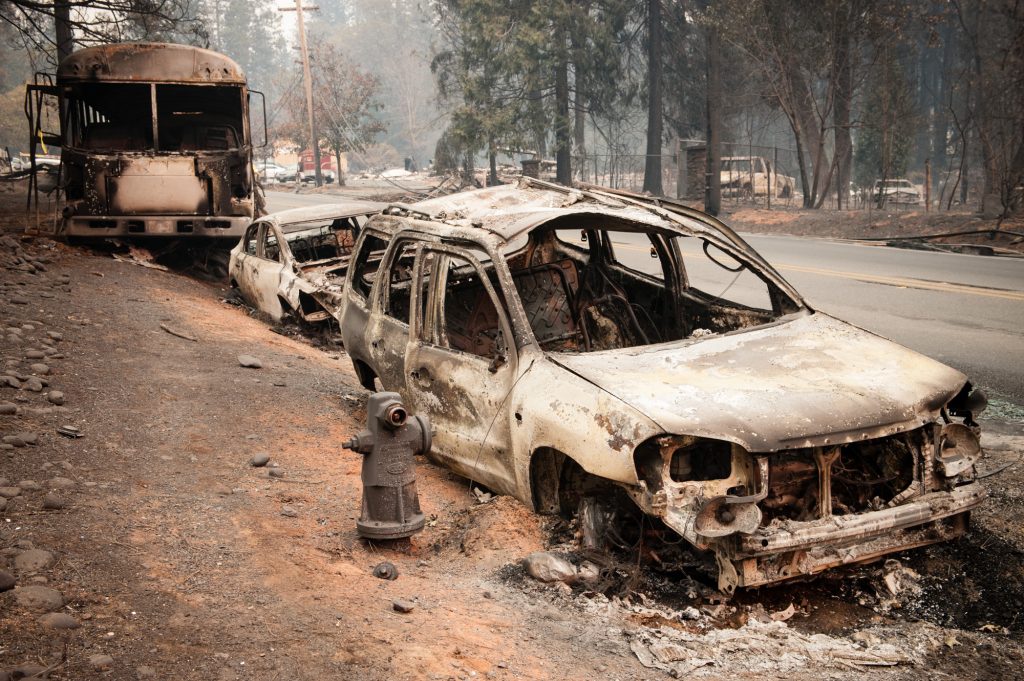
Given the speed of innovation and the loftiness of its promises to improve our comfort or convenience, we often embrace a new technology long before we experience its most worrisome consequences. As consumers, we are pushed to adopt new tech (or tech-driven services) by advertising that “understands” our susceptibilities, by whatever the Joneses are doing next door, and by the speculation “that somehow it will make our lives better.” The sticker shock doesn’t come until we realize that our natural defenses have been overwhelmed or we’ve been herded by marketers like so many sheep.
By tech devices and services, I’m thinking about our personal embrace of everything from smart phones to camera-ready doorbells, from Google’s search engine to Amazon’s Prime memberships, from car-hailing services like Uber to social networks like Facebook. Only after we’ve built our lives around these marvels do we start recognizing their downsides or struggle with the real costs that got buried in their promises and fine print.
As consumers, we feel entitled to make decisions about tech adoption on our own, not wishing to be told by anybody that “we can buy this but can’t buy that,” let alone by authorities in our communities who are supposedly keeping “what’s good for us” in mind. Not only do we reject a gatekeeper between us and our “Buy” buttons, there is also no Consumer Reports that assesses the potential harms of these technologies to our autonomy as decision-makers, our privacy as individuals, or our democratic way of life — no resource that warns us “to hold off” until we can weigh the long-term risks against the short-term rewards. As a result, we defend our unfettered freedom until we start discovering just how terrible our freedom can be.
If there were consumer gatekeepers or even reliable guidebooks, they could evaluate the suitability of new technologies not just for individuals but also for groups of consumers. Before community adoption, they’d consider whether a new innovation serves particular priorities in the community, asking questions like:
– Will smartphones make us more or less distracted?
– Will on-line video games like Fortnite strengthen or weaken our families?
– Does freedom from outside manipulation outweigh the value of, say, Facebook’s social network or Google’s search engine, since both sell others (from marketers to governments) personal information about our use of their platforms so that these outsiders can manipulate us further given what they are learning about us?
Gatekeepers that are worried about such things might even urge testing of new technologies before they’re marketed and sold so that: the initial hype doesn’t become the last word in buying decisions; the crowd-sourced wisdom of advance users can be publically gathered and assessed; and recommendations that consider the up- and down-sides become possible.
By welcoming testing data from across the community, this kind of gatekeeper authority would likely gain legitimacy from the strength of its feedback loop. Back-and-forth reactions would aim to discover “what is good (and not so good) for us” instead of merely relying upon tech company claims about convenience or cost-savings. Before endorsing a new device or tech-driven service, these testers would take the time to ensure that it serves the human purposes that are most important to the group while also recommending suitable safeguards (like age or use restrictions). Moderated time trials would be like previewing and rating new TV shows before their general release.
What I’m proposing is a community driven, rigorously interactive and “take as much time as needed” approach to new tech adoption that — to our free-market ears — might sound impossibly utopian. But it’s already happening in places like Pennsylvania, Ohio and Indiana, and has been for generations. Amish gatekeepers and community members continuously test and tame new technologies, making them conform to their view of what is good for them, with startling and even inspiring results.
Startled, then inspired were certainly my reactions to a story about the Amish that Kevin Kelly told Tim Ferriss in his podcast a few years back. It led me to a Kelly essay about Amish Hackers, a post from a different storyteller about an Amish community’s “experimentation” with genetic technologies to fight inherited diseases, and other dispatches from this rarely consulted edge of American life. (Kevin Kelly is one of the founding editors of Wired magazine and a firm believer that wandering beyond the familiar is the most effective education you can get.) I’d argue there are broader lessons to be taken from Kelly’s and other sojourners’ perspectives about how Amish communities have been grappling with new technologies, particularly when you start (as they do) with a sense of awe that skews less towards “what’s in it for me right now” and more towards pursuit of the greater good over time.
As Kelly followed his curiosity, he noticed that the Amish seem to choose all of their gadgets or tech-driven services “collectively as a group.” Because it’s a collaborative endeavor throughout, they have to start with “the criteria” that they’ll use in their selection process.
When a new technology comes along they say, ‘Will this strengthen our local community or send us out [of it]?’ The second thing that they’re looking at is what’s good for their families. The goal of the typical Amish man or woman is to have every single meal with their children until they leave home.
So they also ask: will a tech-driven innovation increase the quality of our family time together, or somehow lessen it?
Since owning your own car will take you away from your community, they frown on automobiles, favoring more localized forms of transit like the horse and buggy. Similarly, because electricity ties you to a public energy grid and makes the community dependent on outsiders, they limit its use, preferring fuel, wind or sun-powered energy controlled from their homes and workshops. At the same time, while Amish beliefs are founded on the principle that their community should remain “in the world, but not of it,” their inward focus has never dampened their curiosity about new technologies or the practical advantages they might gain by utilizing them.
Strengthening family ties dictates the pace and manner of their tech adoption too. While the Amish engage in a broad spectrum of industries, their work places tend to be close to home so that workers can spend meal times with their families. And there are additional benefits to this proximity. Because the Amish are effectively living and working in the same place, the technology they rely upon to forge farm equipment, make furniture or process their produce tends to be friendly to the land and the people living there. In other words, instead of exporting the environmental and social costs of their economic activities, their means of production are also sustainable for the Amish families that live nearby.
While these criteria seem to imply a kind of primitive simplicity, the reality couldn’t be more different. One wrinkle is the way the Amish distinguish between owning technology and merely using it. For example, those who need the internet at work or school might share that access instead so it’s available for an intended purpose (like operating a business or learning) but not for getting lost in distraction whenever, say, a laptop owner feels like it.

Their work-arounds for living and working off-the-grid are also ingenious. Sometimes instead of electricity, they’ll use gas- or propane-fueled appliances and equipment. The Amish also adapt a startling array of machines and other contraptions to use pneumatic or compressed-air power. Of the later, Kelly writes:
At first pneumatics were devised for Amish workshops [where compressed air systems powers nearly every machine], but it was seen as so useful that air-power migrated to Amish households. In fact there is an entire cottage industry in retrofitting tools and appliances to [so-called] Amish electricity. The retrofitters buy a heavy-duty blender, say, and yank out the electrical motor. They then substitute an air-powered motor of appropriate size, add pneumatic connectors, and bingo, your Amish mom now has a blender in her electrical-less kitchen. You can get a pneumatic sewing machine, and a pneumatic washer/dryer (with propane heat). In a display of pure steam-punk nerdiness, Amish hackers try to outdo each other in building pneumatic versions of electrified contraptions.
How some Amish communities began utilizing genetically modified seeds on their farms — after the customary period of trial and error — also illustrate how their priorities drive their decisions. Unlike the huge turbines used in commercial agriculture, their old, but highly effective (and debt-free) farm equipment could not harvest the pest-weakened cornstalks that GMOs were designed to fight. Amish farmers embraced this seed innovation because they could continue to use their harvesters in a cost-effective manner with little apparent downside. On the other hand, the Amish jury is still out on cellphones. But instead of banning them outright, they are still trying to figure out which uses are good for them and which are to be avoided. In his essay, Kelly celebrated their endless beta testing, both here and in many other areas:
This is how the Amish determine whether technology works for them. Rather than employ the precautionary principle, which says, unless you can prove there is no harm, don’t use new technology, the Amish rely on the enthusiasm of Amish early adopters to try stuff out until they prove harm.
When downsides become apparent, they find ways to minimize them (again, sharing phones instead of owning them) or to eliminate them altogether for community members (like young people) who are most prone to their harms. It’s a time-intensive process where an Amish bishop or gatekeeper can always step in to forbid them, but there is usually a dizzying array of experimentation before that happens.
These time trials may place the Amish as much as 50 years behind the rest of us in terms of tech adoption — “slow geeks” Kelly calls them — but he finds their manner of tech adoption “instructive” and so do I.
1) They are selective. They know how to say ‘no’ and are not afraid to refuse new things. They ban more than they adopt.
2) They evaluate new things by experience instead of by theory. They let the early adopters get their jollies by pioneering new stuff under watchful eyes.
3) They have criteria by which to select choices: technologies must enhance family and community and distance themselves from the outside world.
4) The choices are not individual, but communal. The community shapes and enforces technological direction.
As a result, the Amish are never going to wake up one day and discover that a generation of their teenagers has become addicted to video games; that smartphones have reduced everyone’s attention span to the next externally-generated prompt; or that surveillance capitalism has “suddenly” reduced their ability to make decisions for themselves as citizens, shoppers, parents or young people.

Given where most of us non-Amish find ourselves today, we’d likely be unwilling (at least at first) to step back from the edge of the technology curve for the sake of discovering what a new technology “is all about”—for worse as well as for better—before adapting our lives around it.
In Western cultures, individuals as consumers may have criteria for purchasing or adopting new technologies—like lower cost or greater convenience—but it seems almost impossible to believe that we’d ever be willing to bring others (beyond say a parent or life partner) into this highly personal decision-making process.
Indeed, our individualism as consumers seems so complete that it’s difficult to envision any community whose criteria we would willingly subject ourselves to for the common good. Or as Kelly puts it: we’d have to learn an entirely new skill, which is how “to relinquish” technologies and tech-driven services “as a group” until their efficacy, under the group’s standards, could be demonstrated.
So is it unlikely? “Yes.” But impossible? “No.” And what about desirable? I would argue that learning how to take-the-best-and-leave-the-rest when it comes to adopting new technologies is a consumer-wide competence that’s long overdue.
The Amish are clear that strengthening community and family are the primary goods for them. Like us, they’re drawn to “more convenient” and “less costly” too, but only if these lesser priorities can be made to serve their most important ones. At the same time, they’ll work long and hard to find accommodations for the sake of convenience or low cost by crowd-sourcing their experiences and considering all of the necessary angles before deciding how to proceed. They’re also willing to be one step or even several behind the technology curve. And when they can’t get over the hurdle of likely or actual harms with a product or service, they’ll put it behind them and move on without it.
At this point, it bears mentioning that Amish families and communities are not exemplary in terms of “goodness,” and they don’t claim to be. Indeed, their faith tends to make them more aware of their spiritual vulnerabilities than lesser believers, so they’ll readily acknowledge their sinfulness and struggles with temptation. On the other hand, their awareness of sin also distinguishes them from most of the rest of us. Compared to the Amish, we are relatively thoughtless about what is more and less “good for us,” especially in the long run.
That means our next step would be a big one. The unfettered freedom that we “enjoy” around what we buy and end up adopting makes it difficult for us to band together with others and agree to be subject to any group’s veto power. Our ad-based, consumer-driven economies have hooked us on instant gratification to the point that most of us would be unwilling (at least initially) to wait until the other beta testers in our group have finished their work and a consensus for the greater good could be reached.
On the other hand, given the deluge of new consumer technologies that keeps washing over us and the troubling consequences that come with many of them—like the community weakening propensities of “smart” doorbells and the privacy destroying nature of “smart” home assistants—we might be better off if we joined with others to learn more about what’s involved before embracing “the next shiny new thing” and discovering the downsides later.
We could learn the restraint of slowing down, the power of beta-testing new technologies, and the connectedness of considering what we discover with our fellow experimenters before jumping head-first into unchartered waters.
And perhaps most importantly, we could learn how to come to a collective agreement on the criteria for assessing whether a new technology is likely to be good for us, bad for us, or only acceptable with safeguards in place before adoption.
– What priorities would we test against as we experiment with new products and services?
– What assessment criteria would we apply in our consumer reporting about the next smart speakers, cell phone apps, facial recognition tools or geo-tracking devices?
– How could an interactive gatekeeper group like this avoid becoming a 21st Century version of the Legion of Decency?
On this last point, any consumer protection group would certainly have to tone down the holier-than-thou attitude in its crowd-sourced application of first principles. As tech testers and reporters, the group would need to say: “we don’t know better than you, we’ve just thought about it from various, specific angles, and here’s how.”
Instead of authority residing in an Amish bishop, the wisdom of this group of early adopters and community members could be captured in an evolving body of experience that is informed by both the testers’ feedback (like Yelp’s) as well as by moderating influences on the direction of the debate (like the guidance of Wikipedia editors). Built this way, arguments about what is likely to be good or bad for everyone will always embrace a broader perspective than that of any single tech influencer or seller. In fact, the counter-weight of a consumer protection group to each of us being “on our own” with consequential technology choices would be one of this group’s two greatest strengths.
The other would be pushing a leading edge of tech consumers to decide what is important to them and worth protecting with the strength of their numbers in the free market.
A consumer protection group like this would begin by deciding on the zones it would be committed to safeguarding. They might be our zones of personal privacy (from those who wish to exploit our data for their gain as opposed to ours) and autonomous decision-making (from those who aim to use our behavioral information to manipulate our choices). Group criteria could also include protecting socially or economically vulnerable populations (like the susceptible young or old, or even the self-employed doing ride-hailing, delivery or other gig-economy work) from exploitation or harm by new tech products and services. The group’s overall aim would be to offer a persuasive new perspective to a critical mass of the tech consuming public before we decide to consume a new technology.
Their invitation might sound something like this:
Given our stated priorities, we urge you to slow down your purchases and hold off on your adoption of this new technology until — because it will always take time — its likely impacts can be assessed. We, in turn, will provide you with regular updates as our assessment of the risks and benefits as our experience with this new technology evolves.
Group creation of a public interface that provides criteria-driven, crowd-sourced information about new technology would almost certainly have an additional benefit in the marketplace. As the group’s standing and credibility is established, it’s assessments would likely influence tech companies to be more forthcoming about the potential downsides of their products and services before we’re introduced to them, and even whether they keep fraught technologies on a path to market.
Instead of individual consumers (on the one hand) or government regulators (on the other) trying to figure out how to put the ketchup back in the bottle or toothpaste back in the tube once they’ve made a mess of things, the wisdom of a consumer protection group with “greater good” priorities could serve as a counterweight before a new technology’s stains become permanent.
The group could function like a crowd-sourced Consumer Reports, publishing its assessments on a quality-controlled Wikipedia-type page that every consumer can see, with the aim of laying out the risks (as well as rewards) of new technologies before they’re widely adopted.
The Amish have found a way to test and to tame new technologies so that their priorities of family and community are continuously served.
Aren’t there enough of the rest of us — united in our concern about privacy, surveillance and on-line manipulation — to test and then tame these same technologies?
This post was adapted from my October 11, 2020 newsletter. Newsletters are delivered to subscribers’ in-boxes every Sunday morning. You can subscribe too by leaving your email address in the column to the right.








